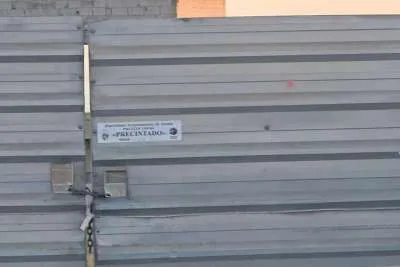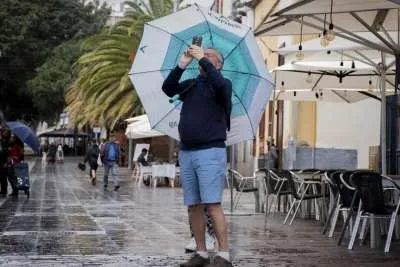How Spanish Websites Handle Ads: Do you need a Pop-Up Blocker?
- 15-08-2025
- Business
- collaborative post
- Photo Credit: Pexels
With the growing popularity of travelling to Spain, a lot of foreign tourists end up on numerous Spanish websites, including websites of train tickets and hotel booking services, local media resources and cultural event websites.
Although the digital environment in Spain is modern and functional, the one aspect that is likely to surprise travellers is the abundance of online advertisements. The natural question that follows is: How do Spanish websites handle ads, and is it necessary to use a pop-up blocker?
When visiting Spanish websites, using a popup blocker can be convenient, especially when you're using the internet on an unfamiliar network, such as a hotel Wi-Fi, a library, or a coffee shop hotspot. These tools not only remove the unwanted interruptions but also increase user security by blocking malicious scripts that can be hidden in pop-ups. Spanish websites are usually safe, though they may contain aggressive advertisement formats, especially on the free services, entertainment sites, or regional news sites.
The Nature of Advertising on Spanish Websites
Spain, as well as most European countries, is strictly controlled by the General Data Protection Regulation (GDPR), which implies that the majority of websites require users to give their consent to using cookies or personalised advertisements. Consequently, you may have noticed that when you visit a Spanish site, you are frequently presented with a cookie banner or consent form before the actual content of the home page appears. This may appear to be an intrusion, but it is included in a legal system that aims at safeguarding your data.
However, beyond such banners, there is a combination of various advertising forms. Websites in Spanish typically feature banner advertisements, video pre-rolls, and interstitials (full-page ads that appear before the main content is displayed). They are generally available on media websites where articles are accessible for free, via streaming, or for download. They are not always evil, though; they may be disruptive and slow down the user experience, especially on mobile devices.
Additionally, certain Spanish travel and reservation websites display pop-ups to encourage users to subscribe to newsletters or take advantage of time-limited deals. These can appear useful at a glance, but can get irritating to the user after repeated exposure, particularly on slower networks. A messy page can be a source of unwanted friction to international travellers, who attempt to find fast access to important information such as train times or museum opening hours.
Do Ads Differ by Region or Site Type?
Ads are not managed in the same manner on all Spanish websites. Large brands and companies, including national airlines or big hotel chains, usually have sleek and advertisement-free sites. Conversely, smaller regional platforms, local entertainment blogs and streaming services are more likely to be ad-focused, resulting in more aggressive or intrusive ad formats.
Travellers are usually surprised by this difference. A site that seems legitimate can pop up numerous pop-ups or redirects, particularly when you go to click a button. This does not imply that the site is unsafe, but it heightens the risk of being misled or clicking on an advertisement disguised as content.
On the same note, local news websites in Spain, just as in any other country, are said to be heavily dependent on advertising. A trade-off in the form of video advertisements, overlays, and auto-play usually accompanies the free access to articles.
When attempting to stay up-to-date with local events, especially during periods of travel disruption or national holidays, these delays can be more than simply a nuisance; they can cause you to fall behind when time is the most crucial factor.
The Case for Using a Pop-Up Blocker in Spain
Browsing with a pop-up blocker in Spain is not only convenient, it is a matter of control over your online life. As most Spanish websites employ aggressive advertisement placements or third-party ad networks, blockers can be used as a form of protection against slow loading, potential security threats, and distractions.
Pop-up blockers may be particularly helpful to mobile users, as they can conserve battery power and minimise data usage. Most advertisements, particularly those in the form of video or high-resolution banners, consume bandwidth regardless of whether you click on them or not. This can prove to be an expensive inconvenience in Spain, where you may be using mobile data or tethered connections as you go about your adventures.
Moreover, the problem can be mitigated with the help of pop-up blockers when using translation tools. Certain advertisements interfere with in-browser translation extensions, causing content to reload incorrectly or triggering script errors. This is especially applicable when one is surfing the net in Spanish but is depending on the instant translation to navigate the travel directions or terms and conditions.
Are There Downsides to Blocking Pop-Ups?
Pop-up blockers are helpful, but they can also sometimes interfere with a site's proper operation. In some Spanish travel booking websites, e.g., confirmation windows or payment forms are opened in new tabs or pop-up windows. The default block of these may lead to mistakes or omissions in the booking process.
The most effective solution is a blocker that allows for adjustable settings. Most pop-up blockers nowadays have a whitelist option, allowing you to add sites you trust, such as a government tourism board or an official booking site, so that essential features are not blocked. In such a manner, you are able to browse with a powerful line of defence and, at the same time, make sure that the vital functions are not disrupted.
Travelling Smart and Browsing Smart
The country of Spain is rich in culture, featuring flamenco rhythms and Gaudí architecture, some of the best food in the world, and a Mediterranean seaside. However, in our digital age, an additional aspect of the travel experience is the effective and secure use of the internet. Ads should never interrupt your trip, whether you are searching local tapas restaurants, reserving a train from Madrid to Seville, or checking into your hotel online.
One of the most significant and yet simple tools you can use to improve your online experience in Spain is a pop-up blocker. Although Spanish websites are usually easy to navigate and highly regulated, obstructive advertisement remains a widespread issue that should be guarded against. Making sure you have the proper browser tools installed before you leave home, you can have a more efficient, safer and more enjoyable experience as you travel through Spain online.
Other articles that may interest you...
Trending
Most Read Articles
Featured Videos
TributoFest: Michael Buble promo 14.02.2026
- 30-01-2026
TEAs 2025 Highlights
- 17-11-2025



























































